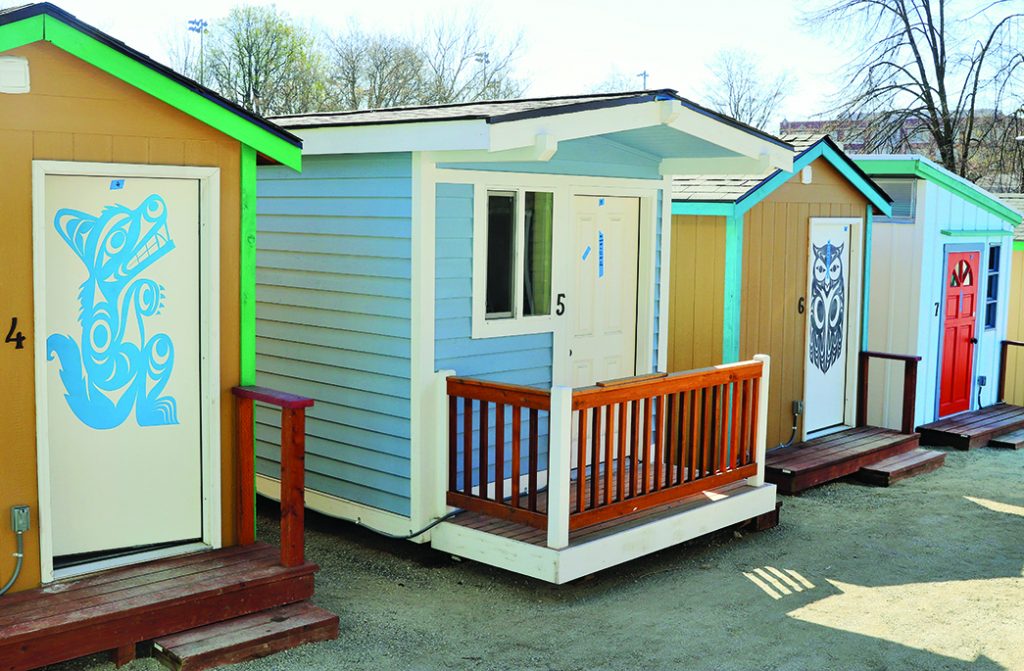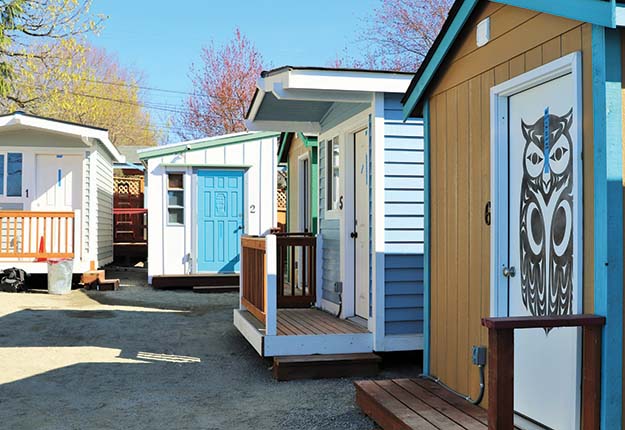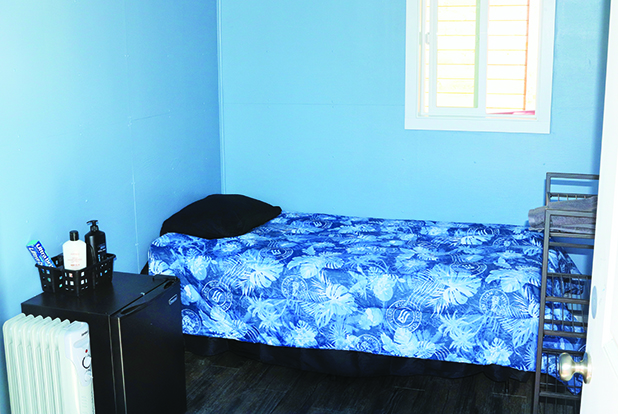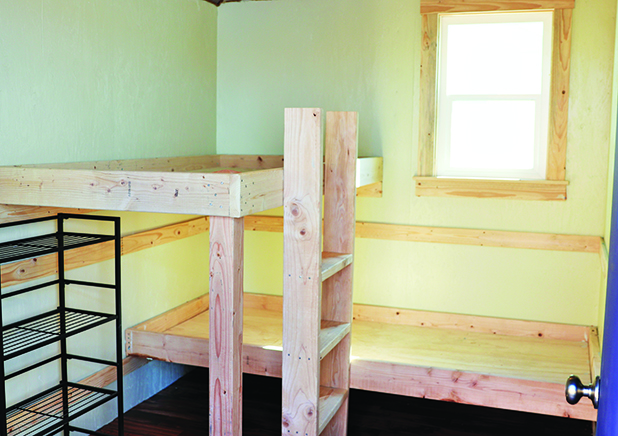
By Micheal Rios, Tulalip News
Spirit Village, a recently constructed and opened tiny house village in the heart of Seattle’s Central District neighborhood, is named after the Christ Spirit Church who generously donated land on which the village is built. If you weren’t told this fact, it would be easy to assume the name stems from the strong Coast Salish spirit imprinted throughout the tiny housing development intended for Native Americans and African Americans who are underserved and over-represented in the homeless population.
Of the 24 tiny homes in the village, 13 were handcrafted on the Tulalip Reservation by the aspiring construction trainees of our own TERO Vocational Training Center (TVTC). According to TVTC instructor Mark Newland, these were the best tiny homes built to date and his students took much pride and ownership in crafting the best possible product for their future residents.
After being built completely from scratch by Native TVTC students, Tulalip artist Ty Juvinel then bestowed on each front door an animal spirit rendered in stunning Salish formline. Those vibrant animal prints have become a signature design used to distinguish tiny homes created at Tulalip from all others.

“We are so thankful for our partnership with the Tulalip Tribes,” said Brad Gerber, special projects manager for the Low Income Housing Institute (LIHI). “It was absolute perfect timing, too, for these houses to come to Seattle where they will serve the immediate needs of the homeless community.
“We’re not advocating that this is a substitute for permanent housing,” continued Brad while on-site at Spirit Village. “However, it is a substitute for living off grid in a tent or in a door way. Other than this program, the city has yet to find really meaningful solutions for addressing this problem at scale. This program allows residents to regain their autonomy, they have their own private space with a lock and door, and the ability to come and go as they please knowing their belongings are safe.”
The village capacity is equipped to house up to 32 residents. This includes individuals, couples, and parents with children who will now have a semblance of stability to build from, but also access to a communal kitchen with proper cooking necessities, a hygiene building with restrooms and showers, and an on-site laundry facility.
Sprit Village’s opening is an opportunity to move more unsheltered people off of the street and into a safe space, where they can practice social distancing and access basic hygiene, as the coronavirus leaves much of the state shut down. Resident referrals to the village will be coordinated by Seattle’s navigation team, in collaboration with the Chief Seattle Club and Seattle Indian Health Center.

“For some, this place can literally be the difference between life and death,” explained Deanna James-Lopez. She serves as weekend manager for Chief Seattle Club and project manager for Spirit Village. “Instead of being marginalized and forced to spend many cold nights outdoors, these tiny homes provide a space to be warm indoors and a feeling of belonging in this world. This safe space is healing to a community that has definitely dealt with their fair share of trauma.”
In partnership with the City of Seattle, faith communities, and building trade organizations throughout the State of Washington, including Tulalip’s TVTC program, the Low Income Housing Institute is one of the largest providers of tiny house village shelters in the nation. They ensure that people’s experience in homelessness is as safe, dignified, and brief as possible.
“We applaud the significant contribution of the Tulalip Tribes TERO Program. The students have built over 10% of all the tiny houses in Seattle,” said Sharon Lee, LIHI Executive Director.

The 96- to 120-square foot tiny houses offer tremendous benefits over tents, as they are safe, insulated, weatherproof, and lockable. Additionally, each tiny house has electricity, overhead light, a portable heating unit, and windows.
LIHI operates 12 tiny house villages in Seattle, Olympia, and Tacoma sheltering over 1,000 homeless individuals each year. Villages offer a safe and dignified place for those living outside. Each village includes on-site case management staff to help residents obtain housing, employment, and other social services.
“The partnership with LIHI has not only allowed us to build tiny houses for the homeless, but has helped us navigate lives and futures,” remarked Summer Hammons, Tulalip TERO Director. “Our students have been honored and grateful to contribute to helping those in need.”